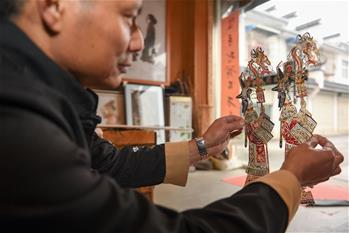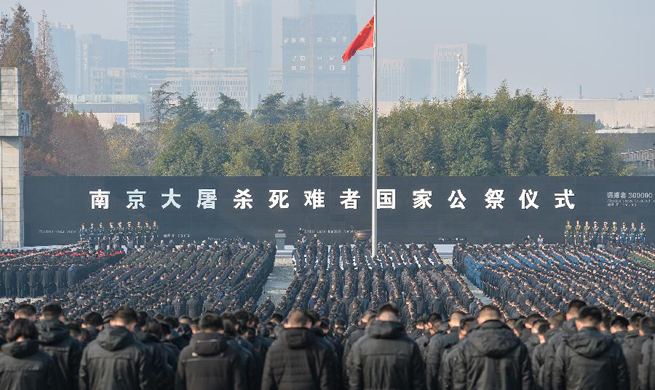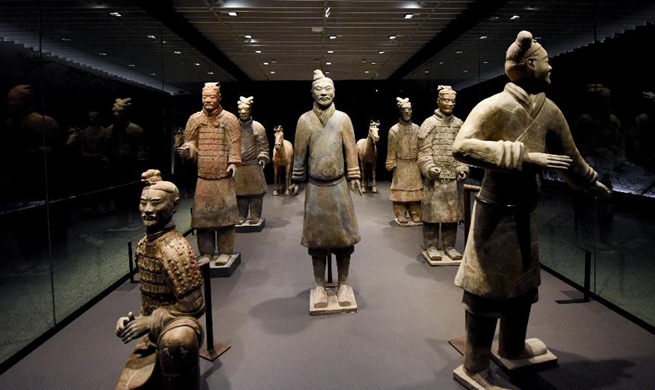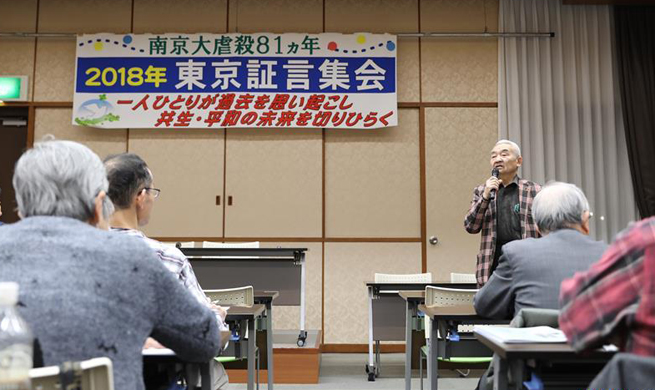ROME, Dec. 13 (Xinhua) -- The Italian parliament's upper house gave green light to a new anti-corruption bill on Thursday, paving the way for its definitive approval by the end of December.
Meanwhile, the Council of Europe urged the country to make further steps to specifically tackle corruption among members of parliament and judiciary.
The new provision was passed with 162 votes in favor, 119 votes against and 1 abstention. Having been amended by senators, the text would now have to go back to the lower house, which had already passed it on Nov. 22.
In the Italian bicameral system, in fact, draft laws must be approved in an identical text by both houses of parliament. Since deputies supported this legislation with a large majority in the first reading, they were now expected to pass it again in a short while.
"Only the passage through the Chamber is now missing, and its approval should arrive next week," Italian Justice Minister Alfonso Bonafede said in a statement after the vote.
"The (government) majority has pledged to have it approved by Christmas, and this is an important message for all honest citizens in our country," he added.
The bill was unveiled by Prime Minister Giuseppe Conte's rightwing government in a ministerial meeting in September, and presented to parliament in October.
The anti-corruption provision is a long-time milestone in the program of anti-establishment Five Star Movement (M5S), which now shares the power with anti-migrant League in the coalition government.
A key measure in the draft approved by the senate provides that people receiving a definitive conviction of more than two years for corruption-related crimes would never again be allowed to work in public administration, hold public office, or run for a public tender.
The perpetual interdiction will apply to all subjects convicted not only for direct corruption, but also for instigation to corruption, embezzlement and aggravated embezzlement, official misconduct, and malfeasance, among others offences.
Those convicted of these corruption crimes for less than two years will be banned for five to seven years.
Sanctions for corrupted and corruptors would be hardened as well, with an increase of the minimum jail sentence from 1 to 3 years, and of the maximum sentence from 6 to 8 years.
The draft legislation would let police work through "undercover agents" in corruption cases, as it has already been allowed for investigations on drug trafficking and terrorism.
It would also stiffen transparency rules for donations to parties and political foundations from both private citizens and companies.
This fresh attempt to tackle corruption in the country followed a legislation introduced by the previous center-left government in 2015, which hardened sentences for bribery and other related crimes, such as vote trading, false accounting fraud, and money laundering.
Yet, the Council of Europe urged Italian authorities to step up reforms in this direction, by tackling corruption among parliamentarians, judges, and prosecutors.
In a report published on Thursday, the organization's anti-corruption body (GRECO) stated that "Italy has made progress to prevent corruption in respect of the judiciary, but significantly more is still needed...in particular concerning parliamentarians."
The GRECO's recommendations in terms of preventing corruption among members of parliament have not been entirely implemented, according to the body.
"In the previous legislature, there were positive steps taken, which now await resumption by the new legislature elected in 2018," it stated.
"With regard to lobbying, GRECO welcomes the development of a mandatory register in the Chamber of Deputies... The Senate has yet to embark on a similar path."
Finally, the Council of Europe said more progress -- although not sufficient -- was registered in corruption prevention measures concerning judiciary.













